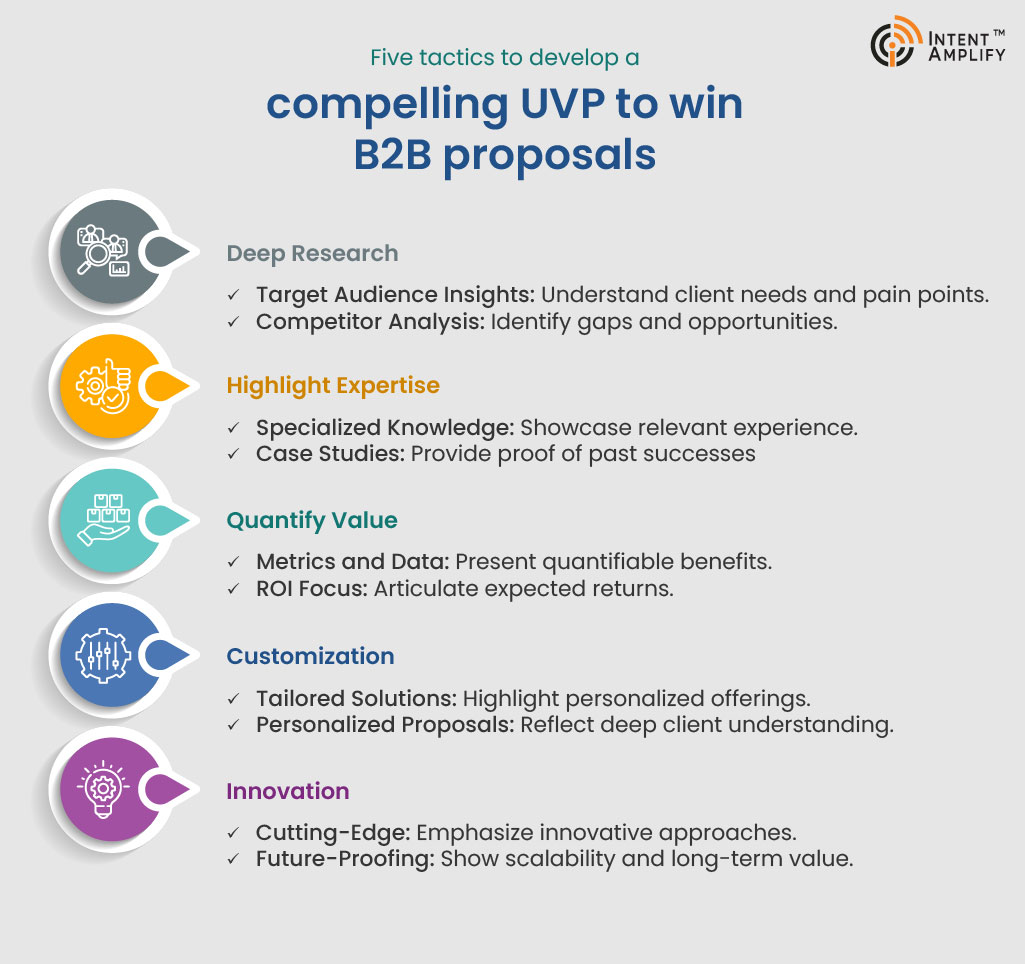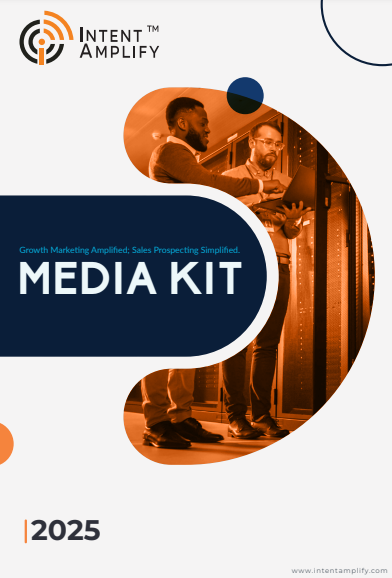
How to Create a Successful Digital Marketing Strategy for B2B Lead Generation
- Last updated on: May 17, 2024
Digital marketing is nothing new. Around 56% of business-to-business (B2B) organizations are already invested in digital marketing. And rightly so, it is a required step to keep your business ahead or at least at par with the competition. Since digital marketing is a highly explored territory, what can set you apart is the way to use it. Presented ahead are some tips to create a successful digital marketing strategy for B2B lead generation.
The Challenge of Finding High-Quality Leads
The B2B marketing world is competitive, and although the world is filled with prospective customers, finding high-quality leads is always a challenge for business growth. As such, a perfectly crafted digital marketing strategy is what you need to attract, engage, and convert potential clients, ultimately boosting your bottom line.
Employing Digital Marketing Techniques
Let’s discuss how we can employ digital marketing techniques to crack the B2B code.
1. Specify your Goals down to the Details
A clear goal is always the most difficult part. While the generic idea could be easy to find such as Measurable Objectives for B2B Lead Generation “generating B2B leads using digital marketing strategy”, the difficult part is to establish measurable and clear objectives such as:
- Increasing website traffic
- Generating a specific number of leads per month
- Improving lead quality
- Enhancing brand awareness
Setting SMART goals will help you track your progress and make necessary adjustments. SMART is an acronym fleshed out as Specific, Measurable, Achievable, Relevant, and Time-bound. These are the 5 key criteria you should use to define your goals while ensuring they remain realistic and meaningful to create a successful digital marketing strategy for B2B lead generation.
For example, instead of the phrase “My goal is to increase sales”, (of course it is!) you can use the SMART template to say something like “My goal is to increase sales by 10% in the next quarter by targeting mid-sized companies in the IT sector“. Much clearer, isn’t it?
2. Identify Your Target Audience
Understanding your target audience is essential for creating a strategy that resonates with potential clients. Develop detailed buyer personas that reflect the characteristics, pain points, and behaviors of your ideal B2B clients.
Creating Detailed Buyer Personas for B2B Clients
Consider factors such as:
- Industry
- Company size
- Job role
- Decision-making authority
- Challenges and goals
These personas will guide your content creation, advertising, and outreach efforts, ensuring they are tailored to your audience’s needs.
3. Conduct a Competitive Analysis
Why waste your time creating novel strategies when you can learn from the experience of your competitor? If a certain digital marketing strategy is working for their B2B business, there’s a good chance it will work for you too, provided you share the same industry.
Gain Insights by Analyzing Competitors’ Digital Strategies
Analyzing your competitors’ digital marketing strategies provides valuable insights into what works and what doesn’t in your industry. Look at:
- Their website and SEO performance
- Social media presence
- Content marketing tactics
- Paid advertising campaigns
Identify their strengths and weaknesses to find opportunities for differentiation and improvement in your own strategy.
4. Develop Your Unique Value Proposition (UVP)
Part of creating a successful digital marketing strategy for B2B lead generation is building your UVP. There’s always something that sets you apart from your fellow product manufacturers or service providers even though you may be selling essentially the same solution. Your Unique Value Proposition (UVP) clearly articulates what sets your products or services apart from the competition. Your UVP should address the specific needs and challenges of your target audience, highlighting the benefits and value you provide.

5. Optimize Your Website for Lead Generation
Your website is often the first point of contact for potential clients, so it’s essential to make a strong impression. Ensure your website is user-friendly and mobile-responsive, optimized for search engines (SEO), and equipped with clear calls-to-action (CTAs). To succeed in business-to-business (B2B) marketing, having a lead generation website is crucial. This type of website is specifically designed to capture leads from potential clients. Its primary objective is to convert site visitors into leads, and ultimately into customers. Incorporate landing pages tailored to different campaigns and make it easy for visitors to contact you or request more information.
6. Implement Content Marketing
Content marketing is a powerful digital marketing strategy for B2B lead generation to attract and engage potential clients. It is something most companies have heard of, but not everyone knows exactly how to implement it. In its most basic sense, content marketing is any sort of branding or promotion you engage in that isn’t focused on advertising your products or services directly to consumers. Instead, you use content creation as a way to promote those products and services indirectly through engagement with your audience and how they’re interested in engaging with you.
Create and distribute high-quality, relevant content that addresses your audience’s needs and positions your company as a thought leader. Types of content to consider include blog posts, whitepapers, and eBooks, case studies and testimonials, infographics, webinars, and videos. Regularly updating your blog and other content channels with valuable information will help build trust and credibility with your audience.
7. Leverage Social Media
Acquiring new and relevant leads can often be one of the most challenging aspects of marketing your business.
Fortunately, social media serves as a highly valuable B2B lead generation channel when used effectively. With 4.89 billion people globally using social media in 2023, it offers an ideal platform for businesses to reach and attract leads. Success depends on deploying the right tactics at the right moments.
Social media platforms like LinkedIn, Twitter, and Facebook are valuable tools for promoting your content, engaging with your audience, and enhancing brand visibility.
Effective Social Media Strategies
Effective social media strategies include:
- Sharing industry news and insights
- Participating in relevant groups and discussions
- Running targeted ad campaigns
Social media can help you reach a broader audience and generate leads through organic and paid efforts.
8. Utilize Email Marketing
Email marketing remains a highly effective digital marketing strategy for B2B lead generation. A robust email marketing strategy enables businesses to target leads, communicate directly with potential customers, and grow their customer base.
Despite the plethora of marketing channels available, email engagement continues to thrive. In fact, 77% of marketers reported increased email engagement over the past year.
Not only has email engagement risen, but email marketing has also significantly impacted many companies’ bottom lines. A HubSpot research indicates that 64% of B2B marketers found their email marketing strategy effective in achieving business goals in 2021.
Effective Email Strategies Involve:
- Segmenting your email list based on buyer personas and behaviors
- Crafting personalized, valuable content
- Using automation to send timely, relevant messages
- Regularly analyze your email performance and adjust your approach based on open rates, click-through rates, and conversions.
9. Invest in Paid Advertising
Pay-per-click (PPC) advertising isn’t only beneficial for B2C companies; B2B companies can also reap significant advantages from it! By executing well-designed PPC campaigns, you can generate leads and drive sales within your target demographic.
Boost Lead Generation with Targeted PPC Campaigns
Enhance your lead generation efforts with targeted pay-per-click (PPC) advertising on platforms like Google Ads and LinkedIn.
Focus On:
- Targeting specific keywords and demographics
- Creating compelling ad copy and visuals
- Monitoring and optimizing campaign performance
Paid advertising can drive immediate traffic and leads, especially when combined with a well-optimized landing page.
10. Implement Marketing Automation
B2B marketing automation revolutionizes the way businesses operate by utilizing advanced software and technology to streamline processes, enhance lead quality, and increase conversions. By deploying comprehensive strategies like lead generation, lead nurturing, email marketing, social media automation, and seamless CRM integration, companies can substantially boost their performance. Studies show that businesses with robust demand-generation strategies can produce 50% more leads at 33% lower costs, highlighting the significant impact of strategic automation in today’s business landscape.
How Marketing Automation Tools Supercharge Lead Generation
Marketing automation tools can streamline and enhance your lead-generation process. Benefits include:
- Automated email workflows
- Lead scoring and nurturing
- Analytics and Reporting
By automating repetitive tasks, you can focus on strategic activities and ensure that leads are engaged and nurtured efficiently.
11. Track and Analyze Performance
Regularly monitoring the performance of your digital marketing efforts is crucial for understanding what’s working and what needs improvement. Use key metrics such as:
Key Metrics for Monitoring Digital Marketing Performance
- Website traffic and user behavior
- Conversion rates
- Cost per lead (CPL)
- Return on investment (ROI)
Tools like Google Analytics, CRM systems, and marketing automation platforms can provide detailed insights into your campaign performance.
12. Adjust and Optimize
Digital marketing is an ongoing process that requires continuous refinement. Based on your performance data, experiment with different tactics, measure results, and make adjustments to improve performance. Regularly updating your strategy will help you stay ahead of the competition and achieve your lead-generation goals.
Conclusion
Creating a successful digital marketing strategy for B2B lead generation involves a multi-faceted approach that aligns with your business goals and effectively targets your audience. By defining clear objectives, understanding your audience, leveraging content and social media, and continuously tracking and optimizing your efforts, you can generate high-quality leads and drive business growth. Implement these strategies to enhance your digital marketing efforts and watch your B2B leads soar.




